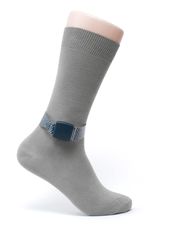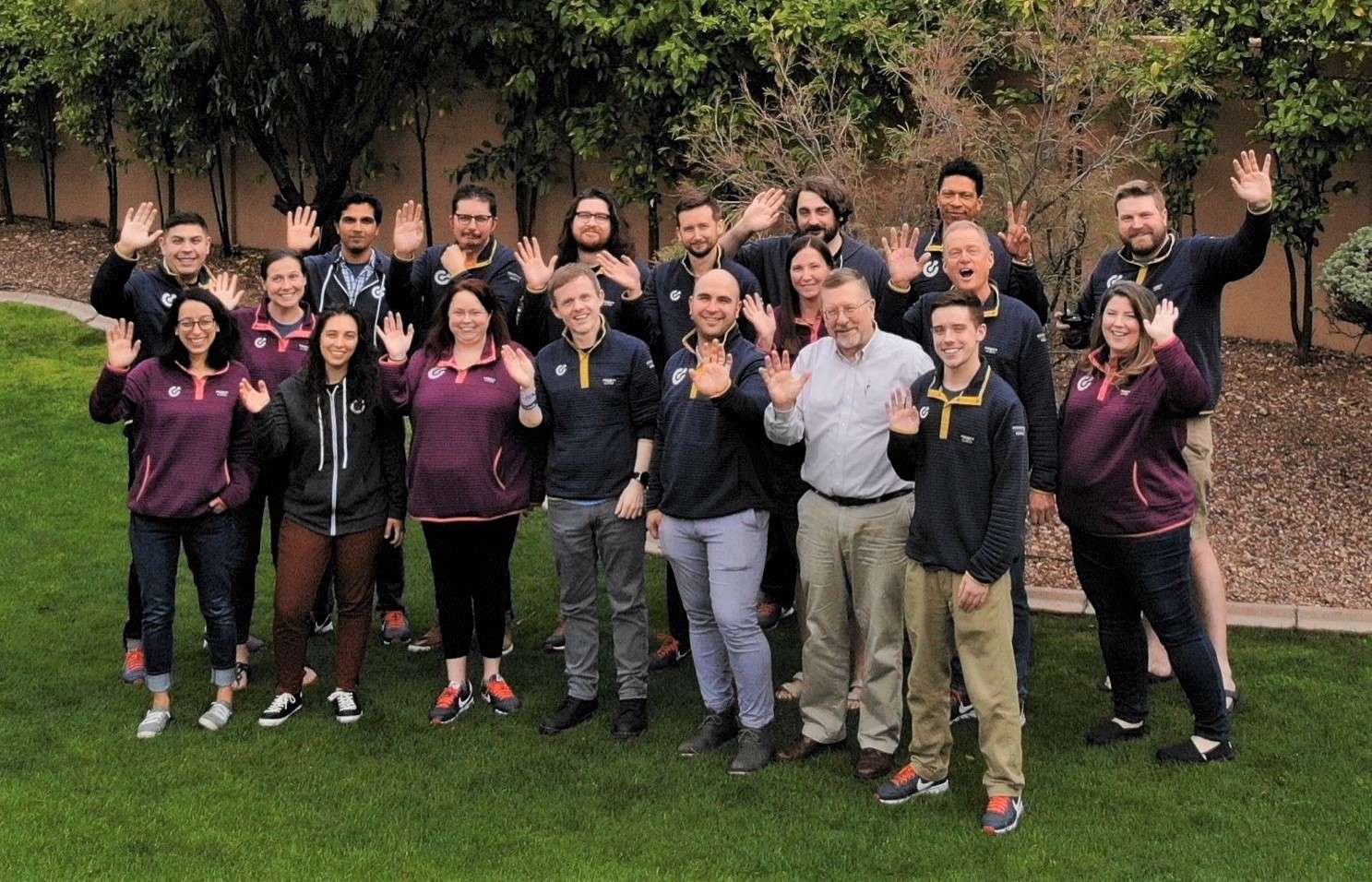
Processing Your Payment
Please do not leave this page until complete. This can take a few moments.
For Cumberland-based Reconnect, Rayshard Brooks left a special legacy
 Screenshot / YouTube
Rayshard Brooks was killed by Atlanta police on June 12. On Feb. 20, in an interview by Reconnect, he spoke about his experiences in the corrections system.
Screenshot / YouTube
Rayshard Brooks was killed by Atlanta police on June 12. On Feb. 20, in an interview by Reconnect, he spoke about his experiences in the corrections system.
A Cumberland-based technology business that’s been around for 11 years began this one by changing things up. A new name. A broader marketplace. Additional investors, who brought a total of $3.7 million in funding.
But Reconnect Inc. couldn’t have predicted it would get caught up in a tragedy changing the social fabric of the United States.
The company develops software and hardware solutions for court-ordered monitoring of people in the criminal justice system. Some are awaiting trial, some are on probation or parole, some are taking part in mandated drug treatment programs. Clients include over 230 courts and corrections systems in 34 states, from California to Maine, where the company recently began serving Cumberland County.

Reconnect is usually under the radar. The electronic monitoring industry is a “billion-dollar market no one’s ever heard of,” founder and CEO Sam Hotchkiss told Mainebiz last week.
To better understand that market, Hotchkiss and his team sometimes interview justice-involved people.
In February, Reconnect Operations Manager Stephen Quirk flew to Atlanta to talk with one of them, a 27-year-old carpenter, on probation after serving a year in prison. His name was Rayshard Brooks.
On June 12, an Atlanta police officer shot and killed Brooks, who was black, as he was being detained over suspicion of driving while intoxicated. The killing quickly reinflamed national furor over allegations of racially charged police brutality, including those around the death of George Floyd in Minneapolis less than three weeks earlier.
Protesters again filled streets across the country. The police officer in Atlanta was charged with murder and 10 other offenses, although the case is still under investigation.
After consulting with the Brooks family, Hotchkiss posted a video on the Reconnect website showing portions of the poignant 40-minute interview with Brooks.
In the video, he speaks openly about his time behind bars, the toll it took on him and his family, and the shortcomings of the penal system.
"If you do something that’s wrong, you pay your debts to society," Brooks says. "That’s the bottom line. I just feel like some of the system could look at us like individuals. We do have lives ...
“A lot of things have caused me to be behind, but here, yet, I’m trying. I’m not the type of person to give up. I’m going to keep going until I make it.”
In a blog, Hotchkiss explained his reason for posting the interview: “We hope that by sharing [Brooks’] words, his legacy can be a sea change in the systems that have created a social pandemic in our communities of color for hundreds of years.”
In a conversation with Mainebiz, Hotchkiss simply said, “We were looking for his voice to be heard.”
The video has been viewed and shared hundreds of thousands of times, and a selfie Brooks snapped during Quirk’s visit has been seen by millions.
On a mission
One of those who apparently has seen the video is David Shaw, founder of Westbrook-based IDEXX Laboratories (Nasdaq: IDXX) and former chairman of Covetrus Inc. (Nasdaq: CVET), headquartered in Portland.
Last Saturday, Shaw shared a link to the interview via the website of his investment partnership, Black Point Group, and announced its stake for an undisclosed amount in Reconnect. Other investors include the Maine Venture Fund and venture capital groups SustainVC, of Philadelphia; San Francisco-based YesVC; and 6ixth Event, of Knoxville, Tenn., according to a previous news release from Reconnect.
SustainVC Managing Principal Eric Chapman said in the release, “At this pivotal moment in history when the [Black Lives Matter] movement is highlighting inequities in the justice system, we are excited to support Reconnect and welcome them to our portfolio of companies empowering and serving marginalized communities.”
That’s similar to the goal of Reconnect, a nonprofit public benefit corporation.
“Our mission is to revolutionize the criminal justice industry by providing technology to allow courts to monitor their participants with less manpower at a lower cost,” the company’s website reads.
Hotchkiss explained the aim by saying, “Often, with the best of intentions, courts create a system of hurdles that make it difficult for people to succeed … Our job is to smooth the way. The result is better for the stakeholders and for society as a whole.”
Electronic monitoring is generally better at reducing recidivism than other forms of community supervision ordered by courts — 31% more effective, according to the federal Justice Department. But monitoring creates other challenges.
Most monitoring companies are “predatory” and “stigmatizing,” Hotchkiss said. The largest, Colorado-based BI Inc., is part of GEO Group (NYSE: GEO), which operates state and federal detention facilities. Nationwide, 125,000 people wear electronic monitors, a number that’s grown 140% in the past decade, according to the Electronic Frontier Foundation, an advocacy group.
An estimated 61% of those who are monitored are required to pay a fee for the service, ranging up to $35 per day, along with $100 to $200 in setup charges. The burden can fall more heavily on people who are indigent or who are of color.
In 2019, the New York Times reported, “No national statistics are available on the racial breakdown of Americans wearing ankle monitors, but all indications suggest that mass supervision, like mass incarceration, disproportionately affects black people.”
For example, in Cook County, Ill., black people make up 24% of the population, and 67% of those on monitors, according to the Times.
The ankle monitor itself can also pose problems.
Like the devices seen on TV crime dramas, traditional monitors are often bulky, obtrusive and require frequent charging, Hotchkiss said. More than inconvenient, they can be a social stigma that prevents those who are wearing them from holding jobs. In fact, the Justice Department found in 2011 that 22% of monitored subjects had been fired because of their monitors.

In contrast to many systems, the Reconnect solution costs 10 cents to $3.50 per day, depending on the level of monitoring needed. Hotchkiss claims the hardware and software are easier to use, and the company’s ankle monitor weighs only 3% of competitive devices. Reconnect’s ConnectBand is small and streamlined and looks like a foot-borne FitBit.
“But we're not an ankle monitor company,” he said. “This is one piece of the puzzle. We're a communication and accountability company.”

The other puzzle pieces include a broad range of solutions: online self-reporting, video chat and instant messaging, mobile apps with reminders for check-ins and curfews, and more.
Growing viral
Reconnect’s ability to share information across multiple devices and formats also make it particularly useful for criminal justice programs looking to do more of their work remotely during the COVID-19 pandemic, according to Hotchkiss. Perhaps as a result, the client base of 238 grew from about 150 over the past three months.
While it may seem Reconnect's time has come, success has been a long time coming.
Hotchkiss, who moved to Maine from Colorado almost 20 years ago, launched the company’s predecessor, Call2test, in 2009. A friend had been arrested — coincidentally, for DWI — and ordered to enter a substance abuse monitoring program. It used obsolete, phone-based systems, and Hotchkiss thought he could come up with a better alternative.
With an investor, Ed Larson, Hotchkiss created a tech tool for automated, randomized drug court check-ins. “It took a while to get traction,” Hotchkiss said. Meanwhile, he built another technology company, a website protection service called Parka, which he sold in 2014.
Eventually, he decided Call2test wasn’t enough. “I realized how much more need there was in the criminal justice industry,” he told Mainebiz.
With the help of the new financing, mostly convertible notes, Reconnect was officially launched earlier this year, and now includes the drug monitoring capabilities of Call2test.
The company has expanded, too. From an original staff of seven, Reconnect now employs over 30 people and is hiring more. About half of the employees are spread across the country. Besides its headquarters in West Cumberland, Reconnect has offices in Boston, New York and, soon, Albuquerque, N.M.
Hotchkiss won’t disclose revenues, but said the company is on a “very exciting trajectory.” Reconnect continues to look at other opportunities for growth in the criminal justice field.
Despite the heady prospects, however, the 36-year-old CEO appears humble. Acknowledging his position as a “privileged white man,” he gave tribute in his blog to Brooks.
“This man recognized the ways that the system had created barriers for him, but was trying to figure out how to move through those barriers,” Hotchkiss wrote. “This man talked about the imperfection of the human condition and had the persistence to keep going, to keep trying to walk down the right path and do the right things …
“Thank you, Rayshard, for sharing your words with us. Black lives matter. They always have, and they always will.”











0 Comments